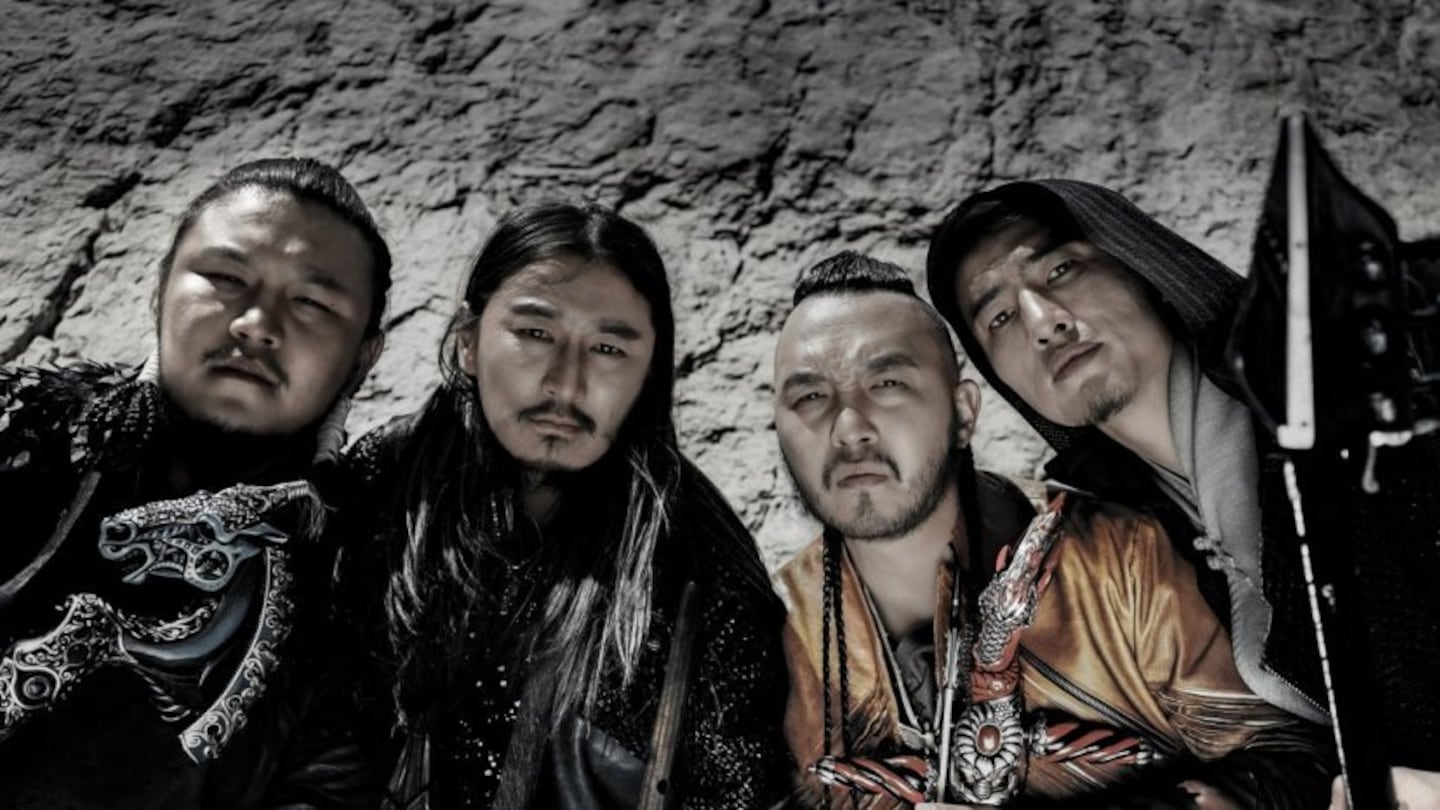The HU band. Starting from the left - Gala, Jaya, Enkush and Temka. Source/The HU. Used with permission.
With Aotearoa closing its borders, international musicians have had to cancel their Aotearoa tours. One such band is The HU, a rock band from Mongolia.
Although Coronavirus has separated the band from our shores, they have made a connection between their culture and Māoritanga. In a statement, Tuga Namur, The HUs’ band manager says:
“We see a lot of similarities in Mongolian and Māori warrior cultures.”
Ranginui and Tengri, the Eternal Blue Sky
One such similarity is the worship and veneration of Ranginui. Ranginui, is known to the Mongolians as Tengri, which translates to meaning “The Eternal Blue Sky”.
Just as Ranginui spawned the ancestor deities of humankind, in the kōrero of ancient Mongolia, Tengri is the father of humans. Chinggus (Ghenghis) Khan, founder of the Mongol Empire traced his whakapapa back to Tengri and saw himself as the messenger of his progenitor. The great Khan would say to his enemies before battle:
"I am the punishment of Tengri. If you had not committed great sins then Tengri would not have sent a punishment like me upon you."
As Tengri is the supreme being of Mongolians, translators of this quote often omit the name Tengri and substitute it for God.
800 years after his tīpuna conquered Mongolia, China, and much of Eurasia, Namur reaffirmed the bands’ belief in Tengri:
“We [The HU] believe and worship the Tengri, the Eternal Blue Sky as our ancestors,” Namur says.
A new kind of rock music
Shoog Shoog, a karakia style song performed by The HU. Source/YouTube.
The HU infuse their culture into their music, combining traditional throat singing, instruments and moteatea with rock music. Calling it “Hunnu Rock”, this unique music is part of a worldwide trend of infusing puoro taketake (indigenous music) with rock and metal. Headbangers around the world consider bands like The HU, Alien Weaponry and Shepherds Reign as pioneers of this new music.
“The Great Chinggus Khan” is a moteatea that celebrates the exploits of their tīpuna Chinggus Khan. “Shoog Shoog” is a karakia, which in Namurs' words, “gives thanks and praise to the ancestral spirits which watch over us.”
The title recalls the words that Mongolian tohunga (shaman) use when they begin their karakia to their tīpuna.
Like many Māori artists here in Aotearoa, The HU wrote a song encouraging people to embrace the tikanga of their ancestors. The song is named "Yuve Yuve Yu", and Namur breaks down the topics raised therein.
"We wanted to remind everyone the importance of showing gratitude to your parents, loving your homeland, protecting the nature, loving and respecting women, respecting your country history and ancestors, and finally giving individuals an inner power and a belief for their future."
The HU support Shepherds Reign
Shepherds Reign were scheduled to be the supporting act for The HUs' show that would have taken place at the Powerstation this Monday past. When The HU found out that Shepherds Reign would be opening for them, they searched for the band on YouTube.
“They’re really good and we love Le Manu!” Namur says.
The HU concluded their statement to Te Ao with a mihi to Māori, Samoan, and Chinese band Shepherds Reign:
“We wish our warrior brothers Shepherds Reign the best!”


